Supplements vs. Pharmaceuticals: The Comparison
SUPPLEMENTS VS. PHARMACEUTICALS: THE COMPARISON (ISSUE 85)
By Diane Gold
Supplements and pharmaceuticals have interesting comparisons. Because of this, supplements very often get confused with pharmaceuticals and vice versa. Let’s break it down from the beginning. Let me say here that the pharmaceutical industry is very complex. It takes huge amounts of money to develop a drug (on average $1.5 to $2 Billion Dollars including clinical trials), and patent length allows the drug company exclusive rights to the drug to get payback for the development and then some.
Supplements are considered an addition to the diet. They are developed from already formed combinations of molecules to enhance health. They help teach nutrition.
WHAT’S THE DIFFERENCE?
The business model for a supplement company is that we can use supplements for a period of time and wean off once we get our food together, if medically possible.
The business model for a pharmaceutical firm is that of making the user regulate a disease on a daily basis, usually causing some addiction, rather than solving the issue with one dose. It requires a true concentration on finding a cure, rather than a daily control for companies to develop one-time fixes.
According to Dr. Jaroslav Boublik, a good friend, veteran product formulator and progressive researcher,
“A simple differentiation between supplements and pharmaceuticals that is generally correct is that supplements seek to supply something that is deficient, or which offers a benefit by consumption of additional amounts, whereas pharmaceuticals seek to treat an illness by intervening in normal or disease-state metabolism. Even more simply put supplements seek to correct imbalances and pharmaceuticals seek to treat symptoms.”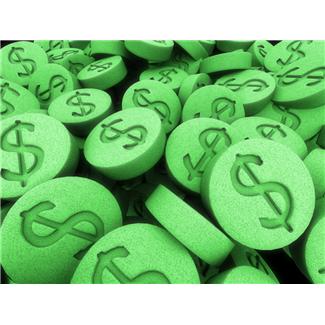
We all have to ask ourselves,
“If we could have a billion dollars from finding a daily pill that would regulate a disease but not cure it; or make $50,000 and find a cure; which would we choose?”
Although the following piece from consumerreports.org is from June, 2006, I wanted to quote it,
“What’s the difference between a nutritional supplement and a drug?
In some respects, not much. Both can have powerful pharmacological effects and cause problems if taken incorrectly. Some conventional medicines are actually derived from plants, and many supplements are sold as concentrates that are virtually indistinguishable from drugs.
“How drugs and supplements are viewed by the Food and Drug Administration (FDA) is another matter entirely. Under the Dietary Supplement Health and Education Act (DSHEA), the FDA essentially treats supplements as if they were foods. DSHEA defines nutritional supplements as products taken by mouth that contain an ingredient intended to supplement the diet.
“Those ingredients could include vitamins, minerals, or natural biological substances such as enzymes. They can come in a variety of forms, including extracts and concentrates, and as tablets, capsules, powders, or liquids.
“Drugs, on the other hand, are legally defined as substances intended to diagnose, treat, or prevent disease.”
PUBLISHER’S NOTE
Replacement of one nutrient, antioxidant or chemical is unlikely to correct the cascade of interconnected metabolic abnormalities associated with serious health problems. It can certainly have a big impact, though.
SAMENESS
 The scientists who spend time researching what will do what to whom care about the outcome of their work as it will benefit humanity whether they work on drugs or supplements.
The scientists who spend time researching what will do what to whom care about the outcome of their work as it will benefit humanity whether they work on drugs or supplements.
Supplement and pharmaceutical scientists both have the same passion as the other for their research.
They both love discovery.
DIFFERENCE
Supplement developers are interested in alternatives to pharmaceutical answers, for the most part. This could be to avoid the exorbitant costs of drugs or to avoid side effects and addiction or to see quick results.
Those who invent supplements tend to be more personally invested in the product since they do not usually work for giant pharmaceutical companies and, many times, thought of the concept themselves.
Supplement scientists are inventing something to be ingested like food to improve nutritional intake.
Pharmaceutical scientists invent substances or parts of molecules that will improve, and can we hope cure?, a particular disease.
Those in the pharmaceutical sphere are driven by the competitive world of which drug company will get to the finish line first to be able to recuperate the $1.5 Billion dollars of out-of-pocket cost per drug, on average, for the drugs that get approval, which is maybe 7% (very rough statistics due to lack of transparency from Scott Gavura of ScienceBasedMedicine.org). Usually the company that is first to market gets the brand recognition like Kleenex or Xerox or Aspirin, so the pressure of the corporate scene causes developers to lose their original goal of helping humanity.
THE BIG DIFFERENCE
 Usually, supplement inventors are in the field of medicine outside the allopathic medicine sphere, meaning they are not part of the set of doctors who treat patients only when a disease shows up. They are more part of the set of doctors or medical healers who look at preventing disease from happening in the first place. They have experience treating people on a more personal level, even possibly physically touching their bodies to heal them. Even without the physical aspect, the people who recommend supplements tend to think prevention first, pharmaceuticals afterwards.
Usually, supplement inventors are in the field of medicine outside the allopathic medicine sphere, meaning they are not part of the set of doctors who treat patients only when a disease shows up. They are more part of the set of doctors or medical healers who look at preventing disease from happening in the first place. They have experience treating people on a more personal level, even possibly physically touching their bodies to heal them. Even without the physical aspect, the people who recommend supplements tend to think prevention first, pharmaceuticals afterwards.
THE SMALL DIFFERENCE
The small difference is that supplements are not regulated by our government agency, the Food And Drug Administration. Pharmaceuticals are.
CROSS OVER POINT
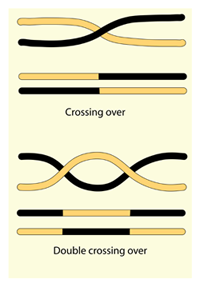 The interesting thing about this, and this is the cross-over point, is that, sometimes when the pharmaceutical industry sees a very lucrative supplement, they move to get it approved as a pharmaceutical so that they can market it.
The interesting thing about this, and this is the cross-over point, is that, sometimes when the pharmaceutical industry sees a very lucrative supplement, they move to get it approved as a pharmaceutical so that they can market it.
There are substances in the world made from roots, seeds, fruits, vegetables (including sea vegetables) pods, grains. They contain vitamins and minerals necessary for life. From these sources, we develop supplements. From much smaller pieces of these substances or other chemicals, we develop pharmaceuticals.
Dietary supplements (also called nutraceuticals) supplement the diet. Pharmaceuticals treat, alleviate or diagnose a particular disease.
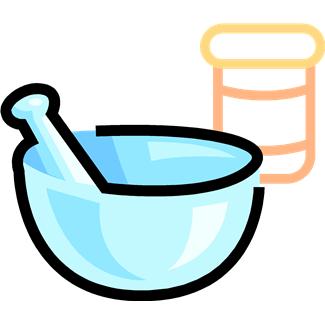 The cross-over point is obvious when we see some products sold as supplements in some countries but as drugs in others. Or consider that Belladonna, when my father was alive, was only available by prescription for gastrointestinal issues and the like. Now, it is available at the homeopathic store.
The cross-over point is obvious when we see some products sold as supplements in some countries but as drugs in others. Or consider that Belladonna, when my father was alive, was only available by prescription for gastrointestinal issues and the like. Now, it is available at the homeopathic store.
CONCLUSION
It is the daily dependence model that the pharmaceutical industry sets up that has people shouting about Big Pharma. The current Big Pharma model requires people to pay money for life for a health solution that could possibly be corrected with a one-time solution if all the Big Pharma research money looked for that one-time solution which would mean the
customer pays once, rather than that the customer pays daily.
Supplements can assist us in insuring proper nutrition. They can be immensely costly as well, but not to the tune of one dose of chemotherapy, a treatment for cancer, whose bill I have witnessed at $25,000.
The financial factor is crucial since lives are changed because of availability or not, with both supplements and pharmaceuticals.
Both supplements and pharmaceuticals can have a prohibitive price tag; how can we offset this? Should pharmaceutical companies be able to refuse people treatment? Should our government? And what about supplements? This is another discussion entirely.
__
SIDEBAR
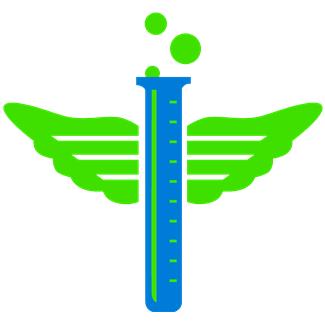 There is, at least, one drug company working on a cancer cure using the human immunodeficiency virus as a one-time cure. They will not be able to administer or sell the drug more than once, because the body cannot accept the treatment more than once. They are considering giving up their profit for the good will it will bring their company and so that they can be first to “cure” childhood cancer. Maybe they wish to show they are benevolent after losing a patent case in India (which the court said was “evergreening,” a technique of making a tiny change to an already patented drug so as to push the expiration date of that patent back for, you guessed it, cha-ching, longer profitability) which would have taken a different cancer drug and made it too expensive for most people who need it in developing countries. With the court ruling, generic companies can now reproduce the drug to help the poor.
There is, at least, one drug company working on a cancer cure using the human immunodeficiency virus as a one-time cure. They will not be able to administer or sell the drug more than once, because the body cannot accept the treatment more than once. They are considering giving up their profit for the good will it will bring their company and so that they can be first to “cure” childhood cancer. Maybe they wish to show they are benevolent after losing a patent case in India (which the court said was “evergreening,” a technique of making a tiny change to an already patented drug so as to push the expiration date of that patent back for, you guessed it, cha-ching, longer profitability) which would have taken a different cancer drug and made it too expensive for most people who need it in developing countries. With the court ruling, generic companies can now reproduce the drug to help the poor.
This drug company’s consideration of cure should be “the norm” and not the exception. And they may not go through with it.
__
ACTION STEP
1) Take a look at the supplements you take, if any. Decide whether these can easily be substituted for food. If yes, replace. If not, enjoy the supplements available to you. If you will not eat the food that you need, consider a supplement.
2) Take a look at the cost of your supplements in another country known for pharmaceuticals. Consider whether it would be less expensive to use that product, including shipping, than the one you use. Make sure to consider the purity and regulation of ingredients of the product you are considering. Consider what it would do to our economy should we all turn to another country for supplements. Consider what we can do to speak out about supplement and pharmaceutical pricing that would be helpful.
3) Add one nutritional food to your diet one time per week.
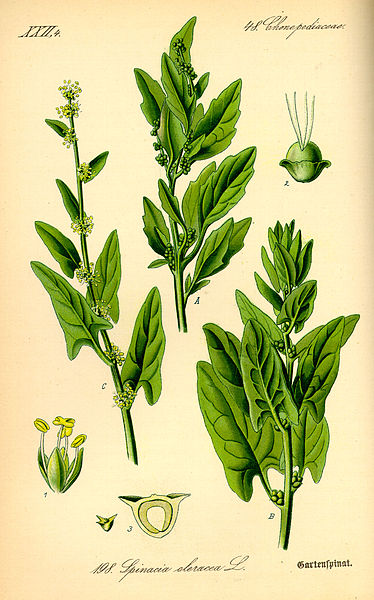
____________________________________________________________________
DON’T BE SHY! ~ Q & A
FREE PASS
Have a question about a habit, nutrition, plant-based nutrition, tai chi, music, parenting, life? Ask here and, if we don’t know the answer, we will ask our qualified panelists and professional colleagues to help get you your answer.
Click the image to ask your question.
____________________________________________________________________
FEEDBACK
Please leave a comment and LIKE.
DIANE GOLD, AUTHOR
Diane Gold, Founder of Warriors of Weight, Turning Habits Into Health, is a mentor in tai chi, kung fu and meditation, a music, fitness and stress expert, dedicated mom, studying plant-based nutrition.
Supplements and pharmaceuticals have interesting comparisons. She says,
“We all want to lead healthy lives. When we feel well, our lives have the best chance of being balanced. When we are feeling poorly, everything is a mess.
“With this in mind, it is extremely important for us to be aware of ourselves, what we need nutritionally, what we need in exercise, rest, relaxation and nurturing and how we choose to proceed when we are not well. Do we see a naturopath, an allopath, a Chinese Medicine doctor or do we not have the money for any of them? Or do we do tai chi for free?
“In order to stay well, it’s important to know how to prevent disease by fortifying ourselves with food: alkaline ones, fatty acids, phytonutrients, a good balance of vitamins and minerals, etc. Supplements may be part of prevention, but good food habits are number one. And then, if we need them, we are glad there are pharmaceuticals to use. And preventive measures often avoid them.
“Supplements and pharmaceuticals both have their place. I’m glad they both exist, although I want them both to be available so that all people, not just the well-off, can maximize their health. We can make that happen together.”

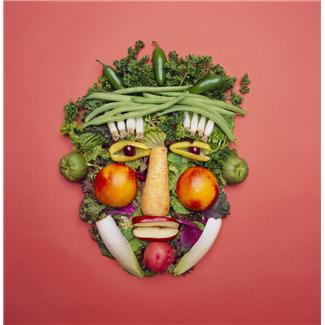 In my constant endeavor to understand what is going on in schools, it has been one of my big concerns to comprehend the lack of emphasis on nutrition in schools in this country.
In my constant endeavor to understand what is going on in schools, it has been one of my big concerns to comprehend the lack of emphasis on nutrition in schools in this country. The choice of food is also crucial. I once had a student who stopped at a well-known fast food drive through (which I won’t name to avoid any publicity!) every morning and wondered why her daughter was complaining of stomach ache every day and systematically missed the first class.
The choice of food is also crucial. I once had a student who stopped at a well-known fast food drive through (which I won’t name to avoid any publicity!) every morning and wondered why her daughter was complaining of stomach ache every day and systematically missed the first class.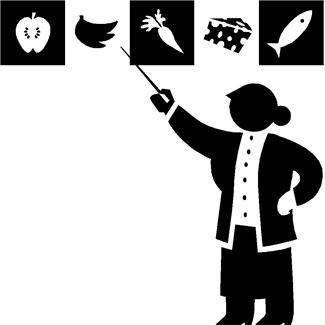 Worse still, very little is taught about practical, everyday nutrition. Yes, in biology class, students learn about the different food groups; they learn about carbs, fats and sugars…But kids are not taught to EAT the right way.
Worse still, very little is taught about practical, everyday nutrition. Yes, in biology class, students learn about the different food groups; they learn about carbs, fats and sugars…But kids are not taught to EAT the right way.





